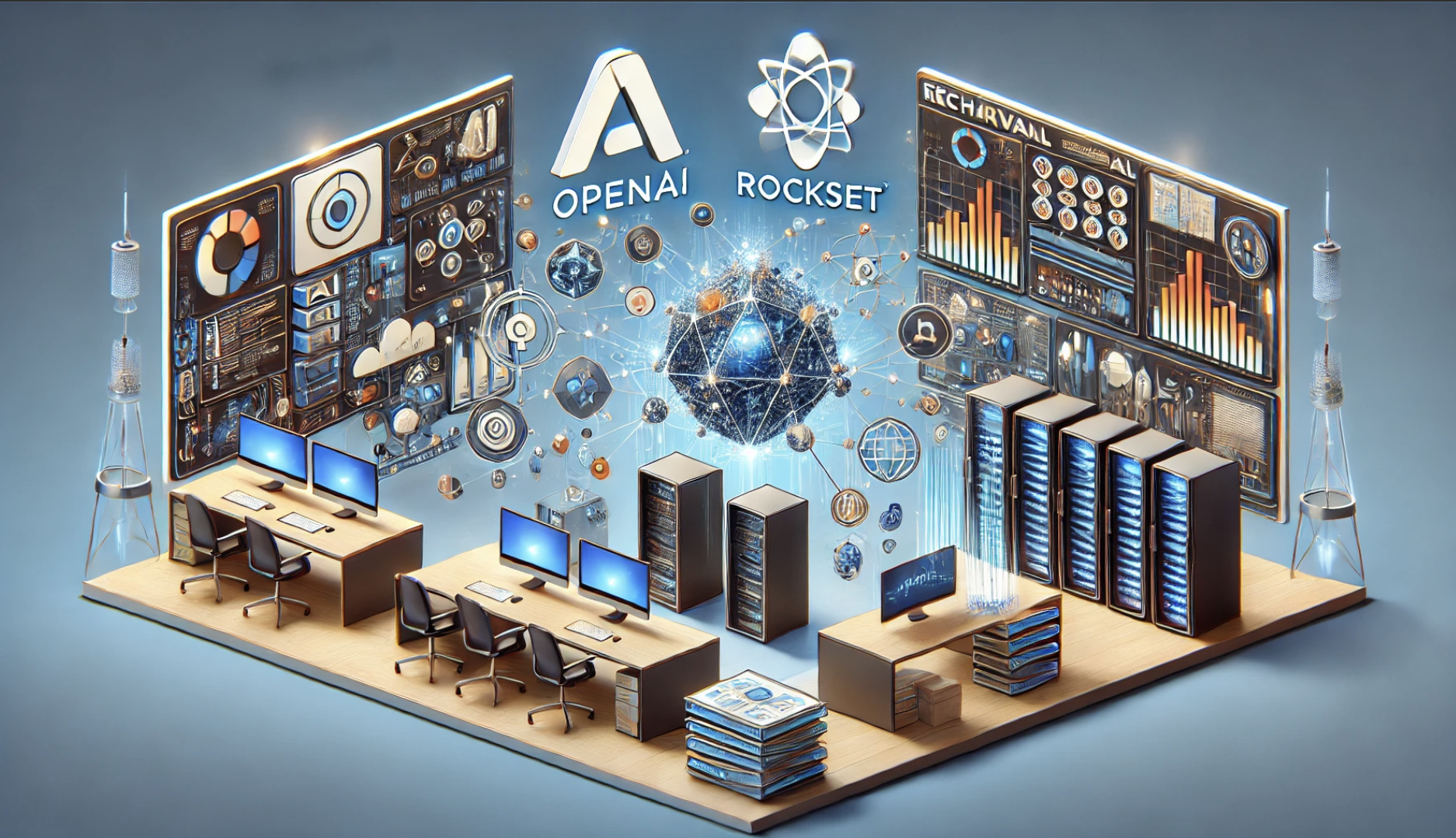In a strategic move to bolster its technology stack, OpenAI has announced the acquisition of Rockset, a prominent provider of real-time analytics databases known for enhancing intelligent enterprise applications. This acquisition underscores OpenAI’s commitment to enhancing its capabilities in data retrieval and real-time analytics, positioning itself strongly against competitors in the rapidly evolving artificial intelligence (AI) landscape.
Key Highlights of the Acquisition:
Integration of Rockset’s Technology: OpenAI plans to integrate Rockset’s advanced indexing and querying capabilities into its retrieval infrastructure.
Rockset Team Transition: The entire Rockset team will join OpenAI, bringing their expertise in real-time data analytics.
Focus on Real-Time Analytics: The acquisition aims to improve OpenAI’s ability to deliver up-to-date and relevant information through its products.
Enhancing OpenAI’s Capabilities with Rockset’s Technology
Founded in 2016, Rockset has established itself as a leader in providing cloud-based real-time analytics databases. These databases enable enterprises to build and scale data-intensive applications, particularly those requiring real-time data processing for tasks such as personalization and IT automation. Rockset’s technology continuously ingests and indexes data from diverse sources, including Kafka, MongoDB, DynamoDB, and Amazon S3. This allows for real-time querying and information availability without the need for predefined schemas.
At the core of Rockset’s technology is the open-source RocksDB, a persistent key-value store initially developed at Meta (formerly Facebook). RocksDB serves as an external secondary index for Online Transaction Processing (OLTP) databases, data lakes, and streaming platforms, significantly accelerating real-time analytic queries. This technology also ensures performance isolation for primary transactional systems, making it an invaluable asset for enterprises dealing with large volumes of data.
Throughout 2023, Rockset enhanced its product with features specifically designed to support AI use cases. These advancements are now set to be integrated into OpenAI’s products, promising to elevate the performance and capabilities of OpenAI’s offerings. With Rockset’s “world-class” indexing and querying capabilities, OpenAI’s retrieval infrastructure will be more robust, enabling faster and more accurate responses to customer queries.
Addressing the Competitive AI Landscape
This acquisition marks OpenAI’s second major publicized acquisition following its purchase of the New York City-based startup Global Illumination, Inc. last year. The move comes amidst intensifying competition in the generative AI domain. Just a day before OpenAI’s announcement, Anthropic, a significant competitor, released Claude 3.5 Sonnet, a large language model (LLM) that has demonstrated superior performance compared to OpenAI’s recently launched GPT-4o in benchmark tests.
Furthermore, Ilya Sutskever, OpenAI’s co-founder and former chief scientist, recently ventured into the AI startup ecosystem with his new company, Safe SuperIntelligence. These developments highlight the fiercely competitive environment in which OpenAI operates and the continuous need to innovate and expand its technological prowess.
Strategic Benefits for OpenAI and Its Users
Integrating Rockset’s technology into OpenAI’s products will enable more effective retrieval of information, allowing enterprise users to receive faster, more relevant responses. This capability is crucial for the implementation of “retrieval augmented generation” (RAG), a technique that combines generative AI with external knowledge bases. RAG enhances the AI’s ability to answer specific queries accurately by referencing relevant documents or datasets, thus reducing the likelihood of incorrect answers.
For instance, an enterprise GPT model powered by Rockset’s technology could provide precise answers to employee queries about company policies by pulling data directly from the enterprise’s documentation. This real-time retrieval of information is essential for applications that require the most current and accurate data, further solidifying OpenAI’s position as a leader in AI innovation.
The Future of Rockset under OpenAI
While the details of how Rockset will operate under OpenAI remain unclear, the integration promises significant enhancements to OpenAI’s products. Rockset has a notable track record of collaboration with industry leaders such as Klarna, Meta, Whatnot, and Windward. How these existing relationships will evolve under the new ownership is yet to be seen, as Rockset has not provided specific comments on this matter at the time of writing.
Venkat Venkataramani, CEO of Rockset, expressed enthusiasm about the acquisition, stating, “We’re excited to be joining OpenAI to empower users, enterprises, and developers to fully leverage their data by bringing powerful retrieval to AI.”
Conclusion
As OpenAI continues to expand its capabilities through strategic acquisitions, the integration of Rockset’s advanced real-time analytics technology represents a significant step forward. This move not only enhances OpenAI’s technological stack but also positions the company to better serve its enterprise clients by delivering more accurate and timely information. As the AI landscape grows increasingly competitive, OpenAI’s acquisition of Rockset underscores its commitment to innovation and excellence in AI technology.

